Focus
Your Present Location: HOME> Focus-

【Asia News】Zhou Rong: China to build a thousand schools in Iraq
Two Chinese companies are awarded the contracts. Over the next two years, Power China will build 679 schools while Sino Tech will build 321. For UNICEF, decades of wars and violence have brought one of the best education systems in the region to its knees. In the first six months of 2021, Sino-Iraqi trade reached US$ 16.3 billion.
2021-12-23 -

【GT】China to help build 1,000 schools in war-torn Iraq after US announces end to combat mission
Chinese companies have signed deals to build 1,000 schools in Iraq, a long-stalled construction project, as part of moves to help reconstruct the war-torn Mideast country, local sources confirmed with the Global Times, after the US announced it would formally end its combat mission in Iraq.
2021-12-22 -

Djoomart Otorbaev: China calls for high-quality BRI development, the right policy for its neighbors
Facing severe domestic challenges in modernizing its economic model for the future, as well as sanctions and tariffs by the U.S., China is reorienting its policy toward high-quality economic growth. The model consists of the rapid development of the high-tech sector and the accelerated adoption of modern digital ecosystems and platforms. Considering the new priorities, how should China's foreign economic policy be modified? How would the new policy affect its cooperation with the Belt and Road nations?
2021-12-22 -

John Ross: China's common prosperity boon to world
The phrase common prosperity has gained prominence this year, as China is determined to bring better lives to more people.
2021-12-22 -

【GT】He Weiwen: Conspiracy stories will not stop foreign companies from betting on the Chinese market
Citing anonymous sources, a recent Reuters report said that the US e-commerce giant Amazon, at China's request two years ago, chose to disable the comments section for certain books in China, claiming that the company "complied" in order to "win favor in Beijing."
2021-12-22 -
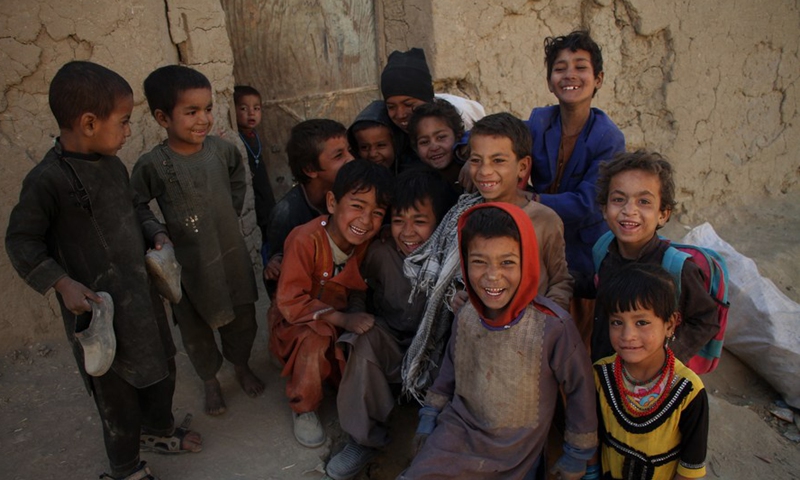
【GT】Zhou Rong:Chinese firm’s copper mine project in Afghanistan hasn’t started, despite Taliban’s push
A Chinese company's copper mine project in Afghanistan, which has been stalled for years, has not started work as uncertainties and hurdles regarding the country's security and business environment remain, despite rising hope for resuming work on the project signaled by Afghan Taliban officials, Chinese sources told the Global Times on Thursday.
2021-12-21 -

【GT】Stripping off the ‘Emperor's new clothes’ of American democracy
The US' two-day "Summit for Democracy" ended hastily on Friday. A farce directed and starred by US President Joe Biden which roped in many countries and regions finally came to an end.
2021-12-21 -
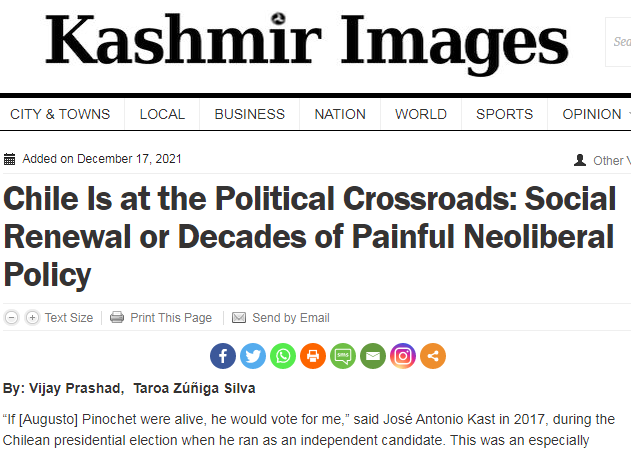
Vijay Prashad: Chile Is at the Political Crossroads: Social Renewal or Decades of Painful Neoliberal Policy
“If [Augusto] Pinochet were alive, he would vote for me,” said José Antonio Kast in 2017, during the Chilean presidential election when he ran as an independent candidate. This was an especially provocative statement made by him out of the many he has made over the years—he had also said that “Chileans need God,” during his campaign in 2017, while proposing religious teachers in all public schools in Chile.
2021-12-20 -

Djoomart Otorbaev: The world energy balance is changing before our eyes
Editor's note: Djoomart Otorbaev is the former prime minister of the Kyrgyz Republic, a distinguished professor of the Belt and Road School of Beijing Normal University, and a member of the Nizami Ganjavi International Center. The article reflects the author's views and not necessarily those of CGTN.
2021-12-20 -
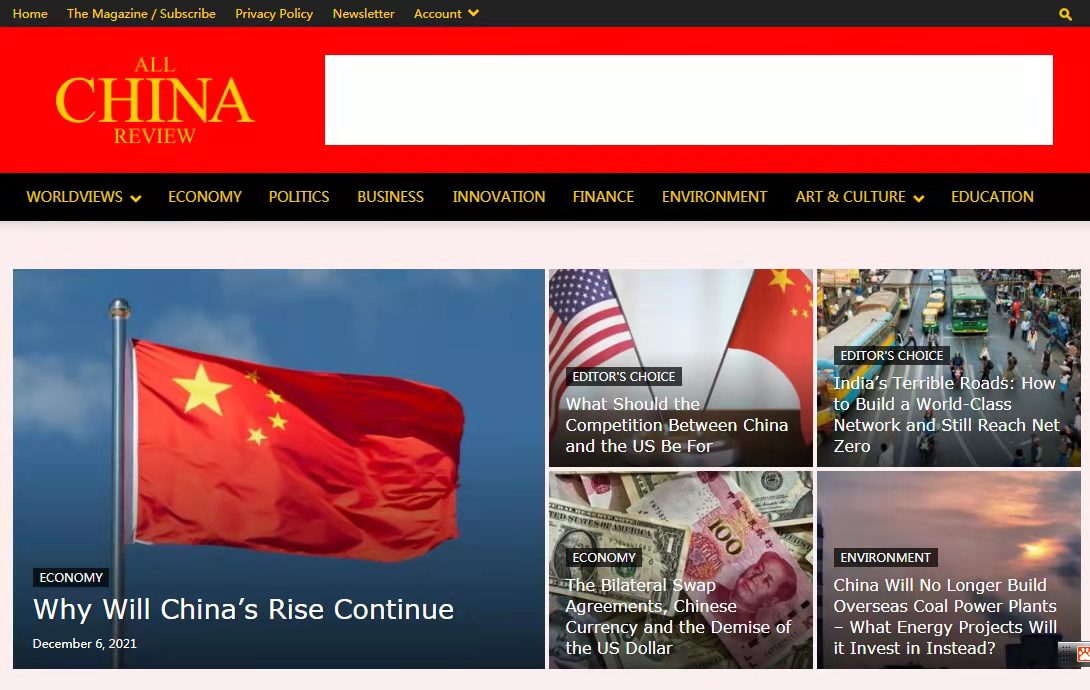
【All China Review】Wang Wen: Why Will China’s Rise Continue
Recently, a few American scholars have blindly forecast, “The End of China’s Rise”, “China Is A Declining Power.” When Chinese scholars hear this, many smile wide, suppressing chuckles. To them, these erroneous end of China slogans only reveal knee-jerk jealousy, and nothing more.
2021-12-20 -
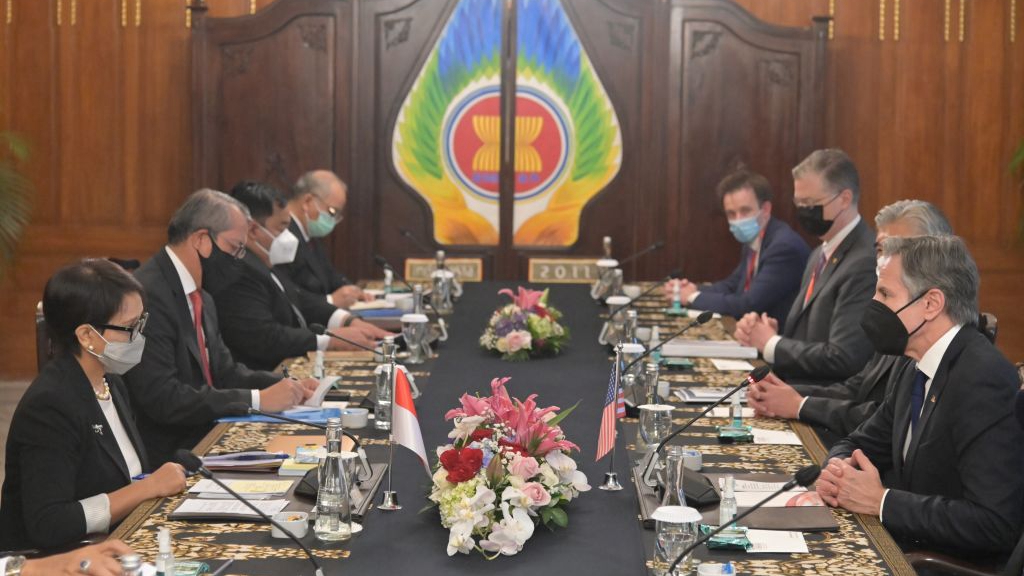
William Jones: Blinken's foray into Southeast Asia cut short by COVID-19
Editor's note: William Jones is the former White House correspondent for Executive Intelligence Review and a non-resident fellow of the Chongyang Institute for Financial Studies. The article reflects the author's opinions and not necessarily the views of CGTN.
2021-12-17 -
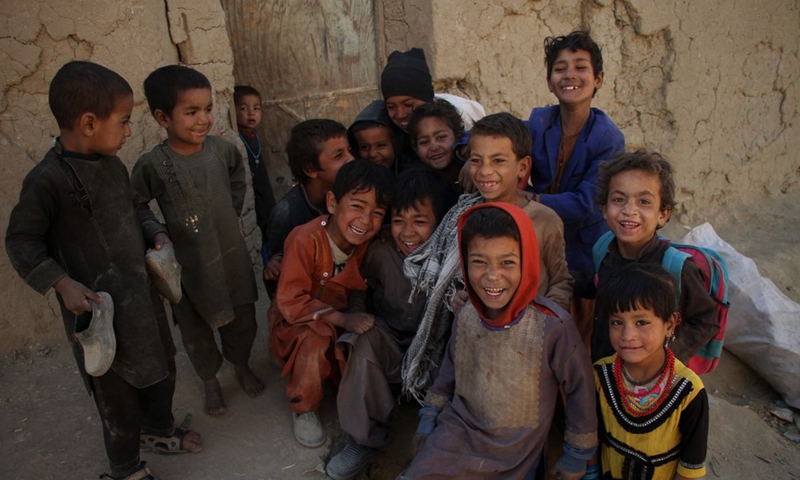
Chinese firm’s copper mine project in Afghanistan hasn’t started, despite Taliban’s push
A Chinese company's copper mine project in Afghanistan, which has been stalled for years, has not started work as uncertainties and hurdles regarding the country's security and business environment remain, despite rising hope for resuming work on the project signaled by Afghan Taliban officials, Chinese sources told the Global Times on Thursday.
2021-12-17 -

Ding Gang: Why it's hard to bring manufacturing back to US
A recent eye-catching report in the US media said Shawmut, a US construction management firm, has launched a new N95 mask. The advertisement for this mask is even more concise: "Our N95 mask is made in the USA."
2021-12-16 -

Liu Zhiqin: China's curbs on housing speculation are changing its real estate market
The real estate market is having its ups and downs these days, but last week's Central Economic Work Conference reiterated the government policy that "housing is for living in, not for speculation."
2021-12-16 -

CGTN: What's your definition of democracy?
When the word "democracy" comes up, what's the first thing that pops into your mind? Is it human rights, referendum or freedom? Undoubtedly, democracy is a shared value of humanity. It is universal, but also specific. Due to the difference in historical nature, culture, institution and level of development of different countries, democracy is not like cola, which can be produced with one formula and taste exactly the same across the world. Roads to democracy are totally different, different people have different understandings of democracy and obtain various methods of achieving it. In this episode of The Chat Room, we invite scholars and youngsters from different parts of the world to discuss their understanding and expectations from democracy.
2021-12-15 -
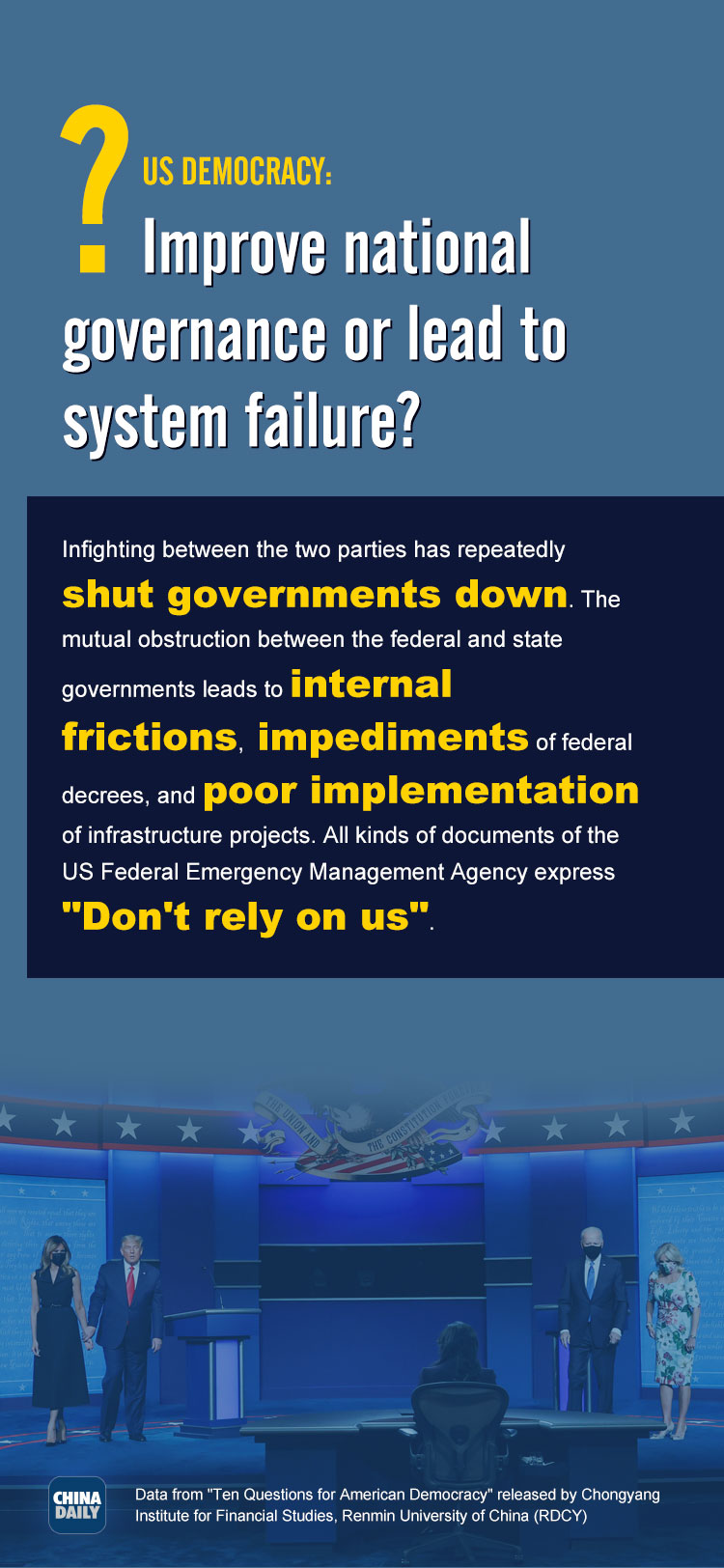
China Daily: American democracy raises doubts
The "Summit for Democracy", a new international charade by the United States, has raised doubts and even dissatisfaction in many countries including the US itself. Chongyang Institute for Financial Studies, Renmin University of China, a think tank engaged in global governance, released a research report "Ten Questions for American Democracy" on December 6 based on some American literatures and articles to help the world understand the truth of US democracy. Here are the highlights of the report.
2021-12-15 -

NPR: Not invited to Biden's democracy summit, China launches a propaganda blitz
Chinese President Xi Jinping is not among the more than 100 world leaders invited to this week's virtual Summit for Democracy hosted by President Biden. So Beijing held its own democracy dialogue.
2021-12-15 -

Wang Yiwei: How does the Belt and Road Initiative benefit people around the world?
2021-12-14 -

US efforts to isolate China from solar industry to end in futility
A US development agency focusing on emerging markets announced on Tuesday approval to finance the country's largest solar manufacturing company to build a factory in India, which has been widely viewed as a move aiming to weaken China's leading role in the industry.
2021-12-14 -
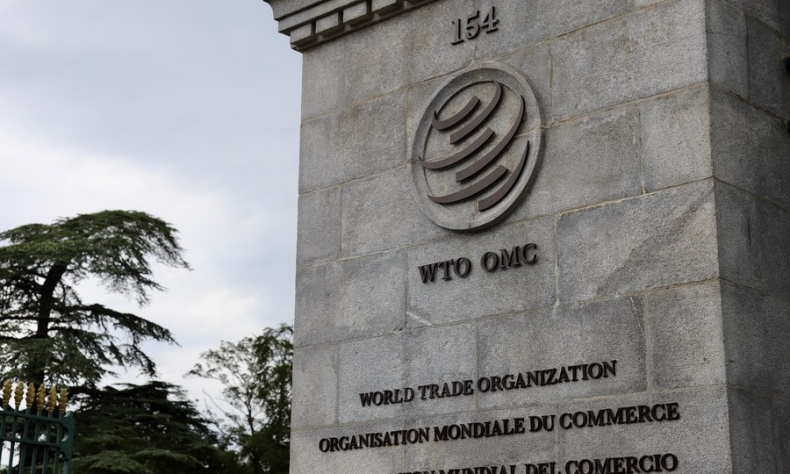
He Weiwen: Twenty Years of China in WTO: from a New Comer to a Key Player
December 11, 2021 marks the 20th anniversary of China’s accession to WTO. The past 20 years history of China in WTO has proved what Pascal Lami, then EU Trade Commissioner and later WTO Director General had said before China’s accession: “China’s accession will make WTO a genuine global organization.”
2021-12-14
























































































 京公网安备 11010802037854号
京公网安备 11010802037854号





